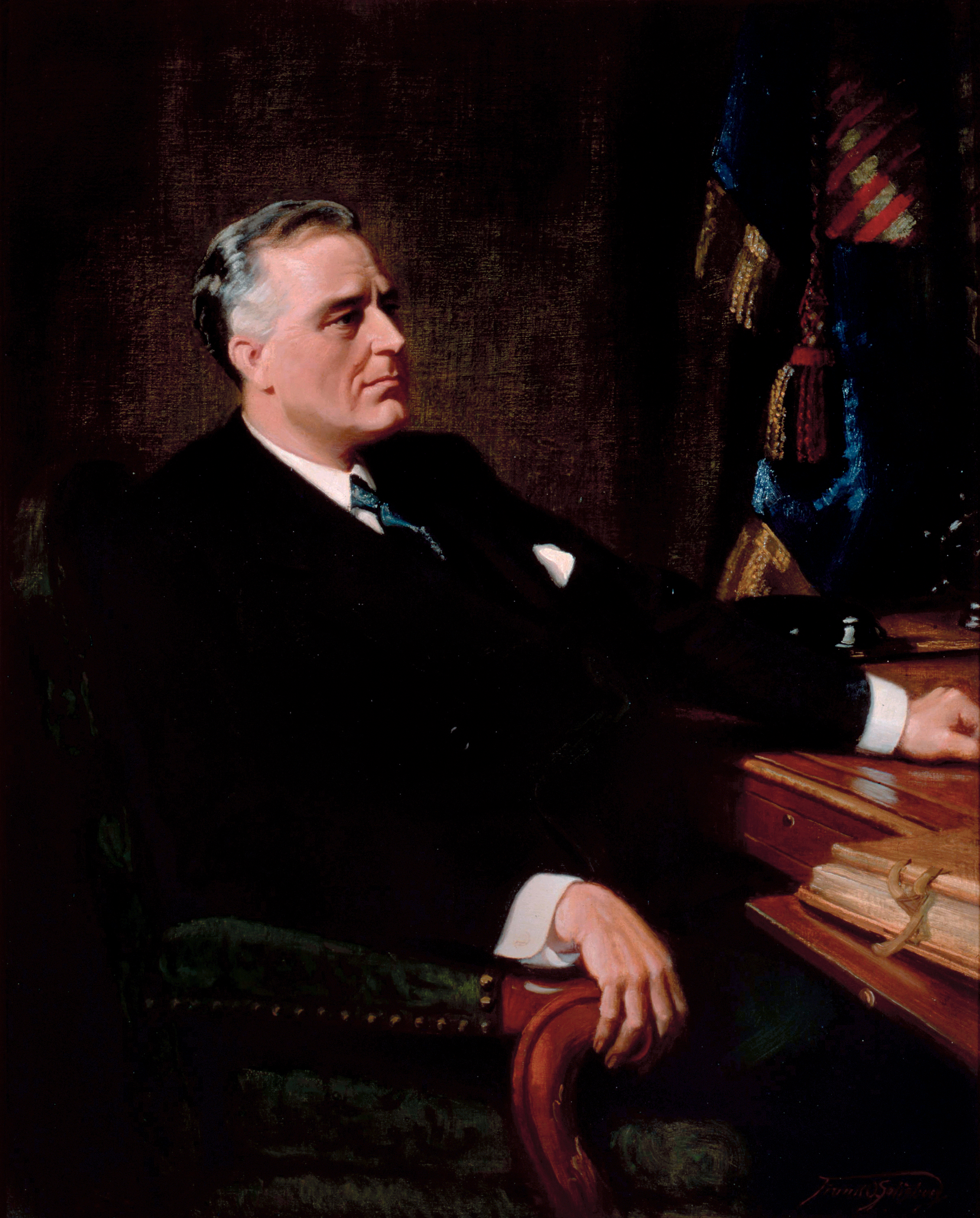Franklin Delano Roosevelt frasi celebri
Origine: Al Madison Square Garden, 1936; citato in Marcello De Cecco, Roberta Carlini, Alla radice della crisi, il manifesto, 5 dicembre 2008.
“Fai quello che puoi con quello che hai nel posto in cui sei.”
Origine: Citato nel programma televisivo Che tempo che fa, RaiTre, 8 gennaio 2011 e in Luciana Littizzetto, I dolori del giovane Walter, Mondadori, 2010.
Origine: Citato in Edward Klein, La maledizione dei Kennedy, Milano, Mondadori, 2007, p. 132. ISBN 978-88-04-53311-5
Franklin Delano Roosevelt Frasi e Citazioni
“Più che una fine della guerra, vogliamo una fine dei principi di tutte le guerre.”
Origine: Messaggio radiofonico alla nazione per il Jefferson Day, 13 aprile 1945.
Origine: Citato in Frances Perkins, The Roosevelt I Knew, Harper Colophon Books.
“In questo 10 giugno, la mano che teneva il pugnale l'ha affondato nella schiena del suo vicino.”
Origine: Commentando la dichiarazione di guerra dell'Italia contro Gran Bretagna e Francia, Washington 10 giugno 1940; citato in storiaxxisecolo.it http://www.storiaxxisecolo.it/secondaguerra/sgmcampagnafrancia.htm
Origine: Citato in Ennio Di Nolfo, Storia delle relazioni internazionali. [Dal 1918 ai giorni nostri], Editori Laterza, Roma, 2008, pag. 545. ISBN 978-88-420-8734-2
Franklin Delano Roosevelt: Frasi in inglese
Campaign address before the Republican-for-Roosevelt League, New York City (3 November 1932), reported in The Public Papers and Addresses of Franklin D. Roosevelt, 1928–1932 (1938), p. 857
1930s
1930s, State of the Union address (1935)
1930s, Speech to the Democratic National Convention (1936)
1940s, State of the Union Address — The Four Freedoms (1941)
1940s, State of the Union Address — The Four Freedoms (1941)
1930s, Message to Congress on tax revision (1935)
1930s, Address at San Diego Exposition (1935)
Talking to his son James http://politicalwire.com/archives/2008/11/04/fear_and_strength.html on the night of his landslide victory over Herbert Hoover (8 November 1932), as quoted in Traitor to His Class: The Privileged Life and Radical Presidency of Franklin Delano Roosevelt (2008) by H. W. Brands
1930s
Address before the Federal Council of Churches of Christ in America. December 6, 1933 http://www.presidency.ucsb.edu/ws/index.php?pid=14574
1930s
1930s, Quarantine Speech (1937)
1930s, First Inaugural Address (1933)
1930s, Address at Chautauqua, New York (1936)
1940s, Response to the attack on Pearl Harbor (1941)
1940s, State of the Union Address — The Four Freedoms (1941)
1940s, Third inaugural address (1941)
1940s, Prayer on D-Day (1944)
1940s, Response to the attack on Pearl Harbor (1941)
Contesto: Yesterday, December 7, 1941 — a date which will live in infamy — the United States of America was suddenly and deliberately attacked by naval and air forces of the Empire of Japan.
The United States was at peace with that nation, and, at the solicitation of Japan, was still in conversation with its government and its Emperor looking toward the maintenance of peace in the Pacific.
1930s, Address at the dedication of the memorial on the Gettysburg battlefield (1938)
1930s, Message to Congress on establishing minimum wages and maximum hours (1937)
Letter to Samuel B. Hill, Chairman of the House Ways and Means Committee http://www.presidency.ucsb.edu/ws/index.php?pid=14894 (6 July 1935)
1930s
1940s, Third inaugural address (1941)
Speech in 1935, as quoted by Donna E. Shalala, as Secretary of Health and Human Services, in a speech to the American Public Welfare Association (27 February 1995) http://www.hhs.gov/news/speeches/apwa.html
1930s
“All free peoples are deeply impressed by the courage and steadfastness of the Greek nation.”
Letter to King George of Greece (5 December 1940)
1940s
1940s, Third inaugural address (1941)
1940s, Response to the attack on Pearl Harbor (1941)
1940s, Third inaugural address (1941)
Comment to economic advisor Leon Henderson, as quoted in Ambassador's Journal: A Personal Account of the Kennedy Years (1969) by John Kenneth Galbraith, p. 225
Posthumous publications
1930s, Fireside Chat in the night before signing the Fair Labor Standards Act (1938)
